World’s Leading Fair for Horticulture Consolidates Its Position as the Most Important Platform in the International Green Sector Even Further
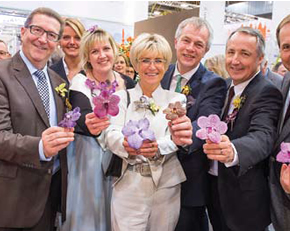 An outstanding mood at the 34th International Plant Fair IPM ESSEN 2016. The world’s leading fair for horticulture was once more able to prove that it is the most important platform for the international green sector. From January 26 to 29, 2016, 1,588 exhibitors from 49 nations presented their innovations and new products along the value added chain in horticulture to first-rate trade visitors from all continents at Messe Essen. The comprehensive range on offer included new plant creations, pioneering technology, strong-selling floristry trends and marketing concepts oriented to target groups. The Innovation Showcase which set a record with 76 plant novelties was representative of the enormous innovative force of the sector.
An outstanding mood at the 34th International Plant Fair IPM ESSEN 2016. The world’s leading fair for horticulture was once more able to prove that it is the most important platform for the international green sector. From January 26 to 29, 2016, 1,588 exhibitors from 49 nations presented their innovations and new products along the value added chain in horticulture to first-rate trade visitors from all continents at Messe Essen. The comprehensive range on offer included new plant creations, pioneering technology, strong-selling floristry trends and marketing concepts oriented to target groups. The Innovation Showcase which set a record with 76 plant novelties was representative of the enormous innovative force of the sector.
“IPM ESSEN has once more proven that it is indisputably the most important fair for international horticulture. The innovations are introduced here and the orders for the coming season are placed here. This year, it was again possible to raise the number and quality of the visitors and the sales transactions. We are more than satisfied,” was the summary made by Oliver P. Kuhrt, CEO of Messe Essen. This year, IPM ESSEN counted 57,200 visitors (in 2015: 56,500). More than 78 percent of the visitors have decision-making or procurement powers – a plus of three percentage points in comparison with the preceding year. 36 percent of the trade public already placed orders at IPM ESSEN 2016 (in 2015: 34 percent). The visitors rated the available range as very positive. Around 93 percent passed on recommendations to visit the fair. The exhibitors also made very positive assessments: 92 percent stated that their expectations for IPM ESSEN 2016 had been met. They reported on a large number of new foreign contacts and successful deals.

 “Temperature is the single most important factor that affects flower value. Therefore, keeping flowers in low temperatures from the farm to the final destination is vital. Among the key areas of consideration is the transport from the farm to the airport. A well known and an increasingly more used tool to achieve this is the use of insulated refrigerated bodies.
“Temperature is the single most important factor that affects flower value. Therefore, keeping flowers in low temperatures from the farm to the final destination is vital. Among the key areas of consideration is the transport from the farm to the airport. A well known and an increasingly more used tool to achieve this is the use of insulated refrigerated bodies.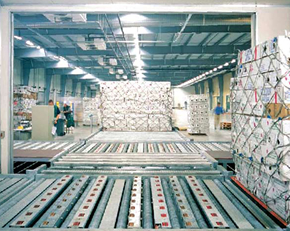 Floriculture is an agricultural sector of worldwide importance and of paramount social and economical influence. Roses account to a large percentage of all flowers grown. After flowers are harvested, temperature is the one factor affecting them the most. This is the time to evaluate different cooling methods used in the postharvest of roses, by measuring their effects over floral longevity and other quality variables. The residual effects of passive, forced air and vacuum cooling methods were evaluated, after transport simulation. The test was performed at a flower-exporting farm. It was found that those flowers exposed to vacuum cooling showed the longest longevity while those that took forced air had the lowest.
Floriculture is an agricultural sector of worldwide importance and of paramount social and economical influence. Roses account to a large percentage of all flowers grown. After flowers are harvested, temperature is the one factor affecting them the most. This is the time to evaluate different cooling methods used in the postharvest of roses, by measuring their effects over floral longevity and other quality variables. The residual effects of passive, forced air and vacuum cooling methods were evaluated, after transport simulation. The test was performed at a flower-exporting farm. It was found that those flowers exposed to vacuum cooling showed the longest longevity while those that took forced air had the lowest.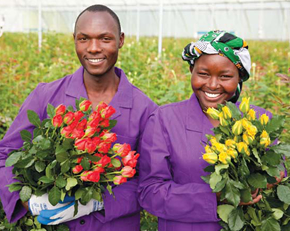 Dutch Flower Group Africa is all about linking Retail and Wholesale consumer markets, all over the Globe,with flower growers in Africa.Being the supply chain partner for overseas DFG companies, the Nairobi based DFG Africa organisation aims to develop long term sustainable relationships in the chain and fosters transparent partnership with growers.
Dutch Flower Group Africa is all about linking Retail and Wholesale consumer markets, all over the Globe,with flower growers in Africa.Being the supply chain partner for overseas DFG companies, the Nairobi based DFG Africa organisation aims to develop long term sustainable relationships in the chain and fosters transparent partnership with growers.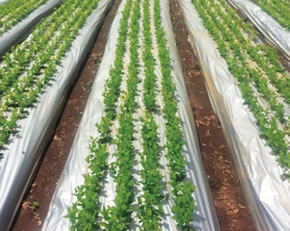
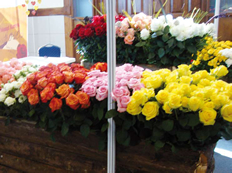 Cold chain management in cut flower supply chains is now of major importance due to markets which are far apart. A research carried showed possible ways to realise the added value of investing in cut flower cold supply chains.
Cold chain management in cut flower supply chains is now of major importance due to markets which are far apart. A research carried showed possible ways to realise the added value of investing in cut flower cold supply chains.